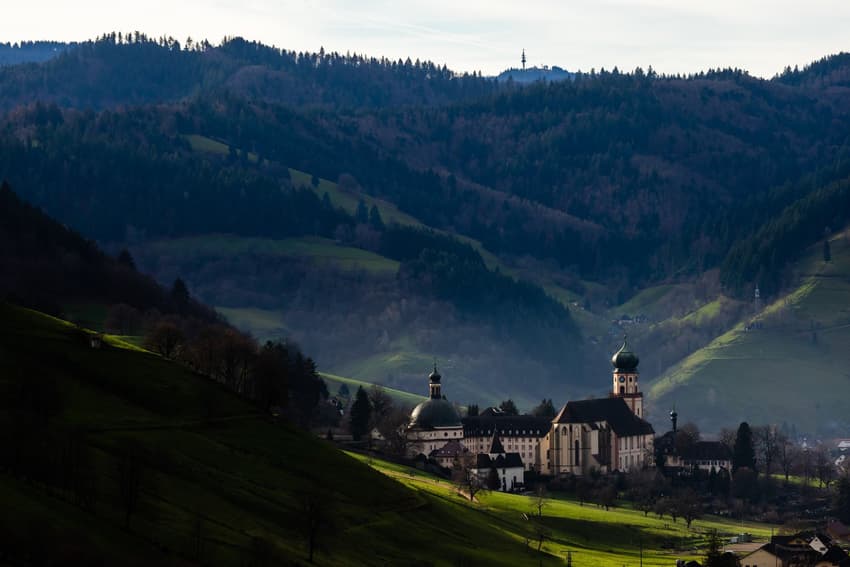Gas reserves increase as weather gets milder in Germany

Mild temperatures around Germany mean that fewer people have been cranking up their heat, and that gas reserves are again at a high level.
As temperatures around Germany have increased, so have the reserves of gas storage facilities.
According to data from the European storage association GIE, the available supplies increased over Christmas weekend by 0.37 percent, meaning that the reserves are now 87.84 percent full.
The high level is due in part to unseasonably mild temperatures the country has seen in recent days. On Monday, the mercury hovered around 10C and even reached 16C in southwest Germany.
The temperatures spiked from mid-December, when large parts of the country were coated with snow as the mercury dove into the negative digits.
As a result, the levels in German gas storage facilities fell by more than one percentage point between December 12th and 15th, after having reached 98 percent at the beginning of the month. The high reserves were also due to mild November weather.
READ ALSO: German gas reserves almost 100 percent full following mild autumn
Another cold spell is not in sight for the time being, according to the German Weather Service (DWD). While the mercury on Tuesday dipped to around 5C to 7C in many parts of the country, particularly in the north, temperatures are expected to rise to at least 13C by New Year’s Eve and Day.
On Saturday, December 31st the mercury will be 12C in Hamburg, 14C in Berlin, 15C in Frankfurt, and 13C in Munich, according to DWD.
Saving gas still important
The storage facilities compensate for fluctuations in gas consumption and form a buffer against volatility on the gas market. They are usually well filled at the beginning of the heating season in autumn, with levels gradually declining until spring.
Last year, the Federal Ministry of Economics and Technology issued new regulations on gas storage to ensure energy supplies in winter. By the beginning of February, they recommend an average reserve level of 40 percent.
In light of the war in Ukraine and growing tensions between Russia and the West, Germany has been seeking to drastically reduce its dependence on Russian fossil fuels and shore up emergency reserves.
Its attempts to save gas were thrown off course after Russia drastically reduced its deliveries via the Nord Stream 1 pipeline over summer and stopped deliveries entirely in September.
Since then, it has raced to find alternative sources of energy. New terminals for importing liquefied natural gas (LNG), for example, are expected to help. In December, Germany opened its LNG terminal in the North Sea port of Wilhelmshaven.
READ ALSO: Germany cuts the ribbon on first LNG terninal
Nevertheless, the government and the BNA have repeatedly called on consumers and industry to use gas sparingly so that it does not have to be rationed.
Comments
See Also
As temperatures around Germany have increased, so have the reserves of gas storage facilities.
According to data from the European storage association GIE, the available supplies increased over Christmas weekend by 0.37 percent, meaning that the reserves are now 87.84 percent full.
The high level is due in part to unseasonably mild temperatures the country has seen in recent days. On Monday, the mercury hovered around 10C and even reached 16C in southwest Germany.
The temperatures spiked from mid-December, when large parts of the country were coated with snow as the mercury dove into the negative digits.
As a result, the levels in German gas storage facilities fell by more than one percentage point between December 12th and 15th, after having reached 98 percent at the beginning of the month. The high reserves were also due to mild November weather.
READ ALSO: German gas reserves almost 100 percent full following mild autumn
Another cold spell is not in sight for the time being, according to the German Weather Service (DWD). While the mercury on Tuesday dipped to around 5C to 7C in many parts of the country, particularly in the north, temperatures are expected to rise to at least 13C by New Year’s Eve and Day.
On Saturday, December 31st the mercury will be 12C in Hamburg, 14C in Berlin, 15C in Frankfurt, and 13C in Munich, according to DWD.
Saving gas still important
The storage facilities compensate for fluctuations in gas consumption and form a buffer against volatility on the gas market. They are usually well filled at the beginning of the heating season in autumn, with levels gradually declining until spring.
Last year, the Federal Ministry of Economics and Technology issued new regulations on gas storage to ensure energy supplies in winter. By the beginning of February, they recommend an average reserve level of 40 percent.
In light of the war in Ukraine and growing tensions between Russia and the West, Germany has been seeking to drastically reduce its dependence on Russian fossil fuels and shore up emergency reserves.
Its attempts to save gas were thrown off course after Russia drastically reduced its deliveries via the Nord Stream 1 pipeline over summer and stopped deliveries entirely in September.
Since then, it has raced to find alternative sources of energy. New terminals for importing liquefied natural gas (LNG), for example, are expected to help. In December, Germany opened its LNG terminal in the North Sea port of Wilhelmshaven.
READ ALSO: Germany cuts the ribbon on first LNG terninal
Nevertheless, the government and the BNA have repeatedly called on consumers and industry to use gas sparingly so that it does not have to be rationed.
Join the conversation in our comments section below. Share your own views and experience and if you have a question or suggestion for our journalists then email us at [email protected].
Please keep comments civil, constructive and on topic – and make sure to read our terms of use before getting involved.
Please log in here to leave a comment.